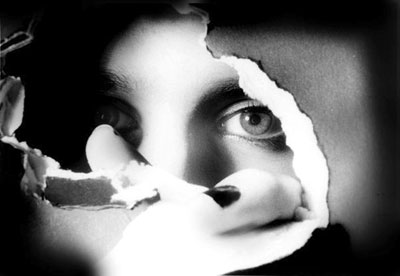All Nonfiction
- Bullying
- Books
- Academic
- Author Interviews
- Celebrity interviews
- College Articles
- College Essays
- Educator of the Year
- Heroes
- Interviews
- Memoir
- Personal Experience
- Sports
- Travel & Culture
All Opinions
- Bullying
- Current Events / Politics
- Discrimination
- Drugs / Alcohol / Smoking
- Entertainment / Celebrities
- Environment
- Love / Relationships
- Movies / Music / TV
- Pop Culture / Trends
- School / College
- Social Issues / Civics
- Spirituality / Religion
- Sports / Hobbies
All Hot Topics
- Bullying
- Community Service
- Environment
- Health
- Letters to the Editor
- Pride & Prejudice
- What Matters
- Back
Summer Guide
- Program Links
- Program Reviews
- Back
College Guide
- College Links
- College Reviews
- College Essays
- College Articles
- Back
The Myths of the 50's Housewife
Often we look back on things as if they were flawless. We don’t see the problems because we don’t live them. We don’t see them if no one wanted to talk about them even when they were happening. In the 1950’s we had just gotten back from war and there was pressure to show what we fought for in a big way. We didn’t want to acknowledge our problems because being back home was supposed to be perfect. This pressure for perfection was saddled on the mother of the family. It was somehow all the wife’s responsibility to take care of the children, the home, the social infrastructure, and be a personal assistant to her husband so that he could enjoy his peacetime. She was told by media that she was supposed to do all this and look beautiful, stay even tempered, and remain happy indefinitely. We still believe that this is reasonable and obtainable when in fact, even when it was thought of as the norm of the time, it has never been attainable.
The 50’s housewife was incredibly overworked, and struggled with very real imperfections like marital problems, depression, drug abuse, alcoholism, and anxiety. The reality is no one is perfect; no era is lacking its problems. It is ridiculous to romanticize a time when women who worked so hard for their families and were given little credit and no voice. It is absurd to allow men all their flaws and expect women to be something more than human. The images that dominated advertisement and television and magazines are what we remember about the 50’s but they aren’t what really was. We construed the mythology that a woman’s path to fulfillment came from executing their domestic chores perfectly. Advertisements, created almost solely by men, contributed to the sexism in households, portraying women as fashion model gorgeous, flawlessly coifed, housekeepers. These images were everywhere. But what influenced public opinion even more was the widespread popularity of television and shows like Donna Reed and Leave It to Beaver. Television allowed for women, children, and men alike to sit back and let these shows embed and reinforce the idea of what the 50’s woman was. The power of fiction that is targeted to feel real is incredible. It can mask the truth of an entire era. Now, I’m not saying that there was no truth in these tableaus but that the reality for a privileged few white, wealthy families was not the truth for the entire population of the 50’s. The flawless housewife was the Victoria Secret model of the 1950’s, an unrealistic image of what a woman is.
A 50’s housewife had very little intellectual stimulation. Every moment of her life was spent tending the great mask of her life: her perfect home, hair, face, clothes, children, husband, all perfect from the vacuumed curtains to the stainless apron. The only women who could really achieve all this were the ones who had maids. Not all women even got the chance to have their try at the domestic lie. Poor women worked taxing jobs all day, single mothers could not afford not to work, most minorities faced prodigious that kept them from economic prosperity. The picture of a nuclear family with a stay at home mother and a working father was not the norm, even in the 50’s.
The 1950’s was the first decade to have anti-depressants and birth control. Drunk driving was illegal but the fines were small and had not yet been linked to a rise in fatal accidents. Smoking had not yet been liked to lung cancer. LSD was an acceptable pastime for intellectuals. All the things that we today associate with anti-conservative activities were common place and rampant in the 1950’s. Women, families, and people were not as faultless as we would like to imagine. We want to numb our problems by thinking that at some time there was something like perfection that we could escape to, even if it was just a myth.

Similar Articles
JOIN THE DISCUSSION
This article has 0 comments.
